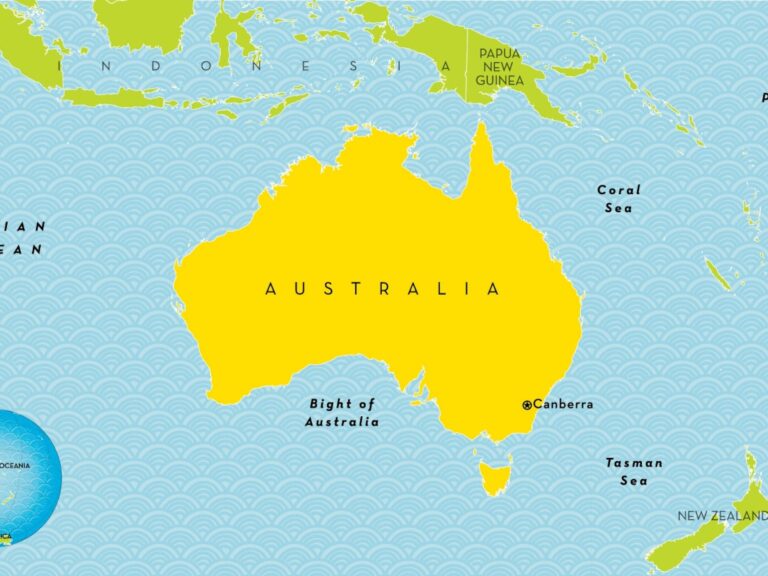Australian Prime Minister Anthony Albanese has affirmed Canberra’s support for the recent US military strikes on Iran, describing the actions as a necessary response to escalating tensions in the region. However, Albanese emphasized that the operations were carried out unilaterally by the United States, with Australia not directly involved in the decision or execution of the strikes. The comments come amid growing international concern over stability in the Middle East and Australia’s strategic alignment with its key ally.
Albanese Affirms Australia’s Backing of US Military Action Against Iran
Prime Minister Anthony Albanese confirmed Australia’s support for recent US military operations targeting Iran, emphasizing the significance of maintaining regional stability and safeguarding international security interests. While expressing solidarity with the United States, Albanese underscored that the strikes were conducted unilaterally by Washington, with Australia playing a supportive but non-participatory role. This distinction aims to clarify Australia’s position amidst heightened tensions in the Middle East and address domestic concerns over the country’s involvement in foreign military actions.
During a press briefing, Albanese highlighted key points about the government’s stance:
- Australia’s commitment to alliance with the US remains strong, particularly in matters of collective security.
- Support for US decisions does not imply direct military engagement or authorization from Canberra.
- Ongoing diplomatic efforts are encouraged to prevent escalation and promote peaceful resolutions.
| Aspect | Details |
|---|---|
| Australian Role | Supportive, non-combatant |
| US Action | Unilateral, preemptive strike |
| Regional Impact | Potential for increased tensions |
| Diplomatic Focus | Prevent escalation, favor dialogue |
Prime Minister Emphasizes the Unilateral Nature of US Strikes Despite Support
Prime Minister Anthony Albanese has clarified Australia’s position following the recent US military strikes targeting Iranian-backed militias. While affirming Canberra’s support for the American actions, Albanese stressed that these operations were carried out without prior consultation or coordination with the Australian government, highlighting their unilateral nature. This distinction underscores Australia’s intent to balance its alliance commitments with a measured approach to regional security dynamics.
During his remarks, the Prime Minister emphasized that Australia’s role remains one of diplomatic support rather than direct involvement. The government continues to advocate for de-escalation in the Middle East, urging all parties to engage in constructive dialogue. The following table breaks down the key aspects of Australia’s stance on the strikes:
| Aspect | Details |
|---|---|
| Support Level | Political and diplomatic |
| Military Involvement | None announced |
| Consultation with US | None prior to strikes |
| Position on Regional Stability | Calls for de-escalation |
- Unilateral action: US-led without allied planning.
- Australia’s role: Supportive yet independent stance.
- Regional impact: Focus on preventing further conflict.
Experts Urge Cautious Diplomacy Amid Rising Middle East Tensions
In the wake of recent US strikes targeting Iranian-linked forces, Australian Prime Minister Anthony Albanese has expressed support for these military actions, emphasizing their unilateral nature. While Australia stands behind its longstanding ally, the US, Albanese was clear to delineate that Canberra was not involved in the decision-making process that led to the strikes. This delicate balancing act underscores the nation’s effort to maintain diplomatic ties across a fractious and volatile Middle East landscape while avoiding direct entanglement.
Experts specializing in international relations and conflict management have called for a measured approach moving forward. They highlight several key considerations:
- Regional Stability: Escalations risk drawing neighboring countries into broader conflicts.
- Diplomatic Channels: Open communication between Iran, the US, and allied nations is vital to de-escalate tensions.
- Humanitarian Concerns: Civilians often bear the brunt of such conflicts, requiring urgent attention and protection.
| Factor | Potential Impact | Recommended Action |
|---|---|---|
| Military Strikes | Heightened hostilities | Limit further unilateral action |
| Diplomatic Engagement | Potential de-escalation | Increase dialogue & mediation |
| Regional Alliances | Shift in power balance | Monitor closely & adapt policy |
In Summary
As tensions continue to escalate in the Middle East, Australia’s position underscores the delicate balance Canberra seeks to maintain between supporting key allies and emphasizing the importance of unilateral decision-making in matters of national security. Prime Minister Albanese’s remarks highlight the country’s strategic alignment with the United States while reinforcing Australia’s commitment to independent foreign policy decisions amid a volatile geopolitical landscape. The developments remain closely watched both domestically and internationally, with potential implications for regional stability and Australia’s diplomatic relations.




